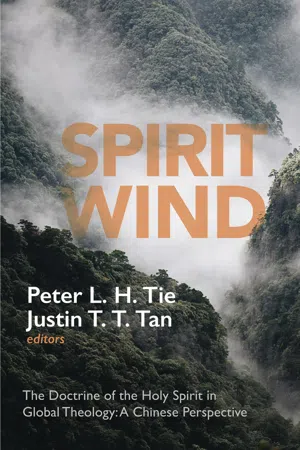![]()
Biblical-Theological Perspective
![]()
1
Spirit, Scripture, Saints, and Seminary
Toward a Reappropriation of “Spirit Illumination” in “Scripture Interpretation” for Seminarians
Peter L. H. Tie
Introduction
Defining biblical infallibility and/or inerrancy may help clarify the question of the authoritative nature of Scripture, but it still may not satisfactorily answer the related questions of the use of Scripture. Scripture, though completely trustworthy and truthful, does not necessarily guarantee correct interpretation and application of Scripture by Christians or theologians. They acknowledge that the Bible’s trustworthiness is rooted in divine inspiration (theopneustos), i.e., the Holy Spirit is the ultimate Author of Scripture, yet the Spirit designated and used human authors to inscribe the words. This is commonly called “concursive inspiration,” namely the co-operative authorship of God and humans. Thus, the Bible is God’s word in human words. Dockery stresses, “Scripture cannot rightly be understood unless we take into consideration that it has dual-sided authorship . . . What must be affirmed is that the Bible is entirely and completely the Word of God and the words of the human authors (Acts 4:25).” Dockery adequately highlights the divine-human authorship of Scripture and identifies its crucial implications for proper interpretation of Scripture.
Theoretically, the concept of “divine and human authorship” seems rather simple to grasp. To accept the divine aspect of inspiration is to affirm the Bible as the word of the eternal God who “speaks eternal truth that is applicable to readers of all times, beyond the original recipients.” To embrace the human aspect of authorship is to acknowledge the Bible as the words “from godly men to specific communities addressing problems and situations within certain contexts and cultures.” Dockery concludes unambiguously that “inspiration applies to all of canonical Scripture (including the process, purpose, and ultimately the product) and assert[s] that by the concursive action of God the Scriptures are, in their entirety, both the work of the Spirit and the work of human authors.” Point taken. A firm commitment to this dual authorship is indispensable for biblical interpretation. To disregard one or the other is to plunge oneself into great peril.
Acknowledging the dual authorship of Scripture suggests, on the one hand, Christians should rely on the Spirit’s illumination to understand Scripture; on the other hand, they are responsible to interpret Scripture using the proper hermeneutical tools. Ideally, keeping the two—illumination and interpretation—in proper balance is the goal of biblical interpretation. A more relevant question in this chapter is whether believers, especially theologians and seminarians who are called to teach Scripture, have preserved the intimate connection between the Spirit and Scripture for better understanding of God’s word and will.
The initial step of this chapter is to assess the issue concerning whether Christians and/or theologians keep a proper balance between the divine (illuminating factor) and human (interpretive methods) aspects in the interpretive process, that is, if “concursive inspiration” or “dual authorship” is faithfully acknowledged and executed in practice. This writer will briefly analyze a common situation in Chinese churches, in particular, as to why some discourage seminary training in biblical or theological understanding (hint: too academic, not spiritual enough!). Then, I will investigate a handful of substantial textbooks on biblical hermeneutics used in evangelical seminaries to see if they give “sufficient seriousness” to both the “divine and human” aspects in interpretation. An initial survey suggests a significant imbalance, i.e., overemphasizing the human aspect over the divine aspect, throughout the selected textbooks. Put concisely, the divine aspect of “Spirit illumination” seems to be proportionately deemphasized in seminary studies. Finally, I will offer a tentative proposal to counteract the imbalance of the human endeavor and Spirit illumination in the hope of fostering a more biblically balanced hermeneutical principle and practice. In this section, I will also attempt to include the relevant hermeneutical writings from those selected textbooks while interacting with other hermeneutical works on the illumination of the Sp...
